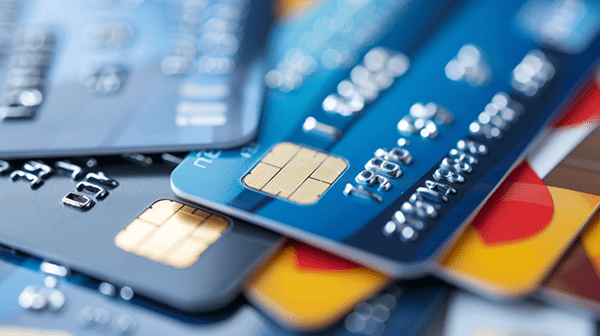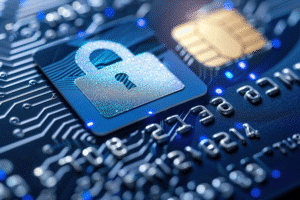Contents
- EMV Tokenization in 2025: The Complete Guide
- What is EMV Technology?
- EMV Security and Its Limitations
- Regions with Mature EMV Adoption
- EMV Technology Limitations:
- The Role of Tokenization in Payment Security
- How Tokenization Works with EMV
- EMV Payment Tokenization: Key Features and 2025 Developments
- Core Components of Modern Tokenization
- Regulatory Landscape in 2025
- Risks Without Tokenization: The 2025 Threat Landscape
- Requirements for EMV Tokens
- Cross-Border Payment Developments
- The Future: EMV Tokenization
- Expert Resources
- Further Reading
EMV Tokenization in 2025: The Complete Guide
What is EMV Technology?
EMV (EuroPay, Visa, MasterCard) represents the global standard for secure credit and debit card transactions. Named after its original developers (Europay, Mastercard, and Visa), EMV technology utilizes embedded microprocessor chips to authenticate transactions with sophisticated encryption. According to the EMVCo 2025 Global Adoption Report, EMV technology has reached unprecedented adoption levels, with over 95% of worldwide card-present transactions utilizing EMV cards, up from 90% in 2023.
EMV Security and Its Limitations
EMV chip cards generate a unique cryptogram for each transaction. This dynamic authentication makes card cloning virtually impossible, significantly reducing card-present fraud rates across global markets. The Federal Reserve Payments Study indicates card-present fraud has decreased 87% in regions with mature EMV adoption.
Regions with Mature EMV Adoption
- Europe: The pioneer in EMV adoption with near-complete market penetration (98-99%). Countries like the UK, France, and Germany have had mature EMV ecosystems since the early 2010s.
- Canada: One of the earliest comprehensive adopters outside Europe, with approximately 99% EMV adoption for card-present transactions.
- Asia-Pacific:
- South Korea, Japan, Singapore, and Australia: Have achieved mature EMV adoption rates above 95%
- China: Has high adoption rates in urban centers but slightly lower rates in rural areas
- Latin America:
- Brazil, Chile, and Mexico: Lead the region with mature adoption rates above 90%
- Other countries in the region have more variable adoption rates
- Middle East:
- UAE, Saudi Arabia, and Qatar: Have reached mature adoption levels exceeding 95%
- United States: Finally reached mature adoption status around 2022-2023, after a slower initial rollout than other developed markets. Current adoption is approximately 95% for card-present transactions.
EMV Technology Limitations:
- It doesn’t fully protect the Primary Account Number (PAN) throughout the entire payment ecosystem
- EMV security primarily addresses card-present scenarios, leaving gaps in digital channels
- Traditional EMV implementation doesn’t adequately protect against data breaches at merchant or processor levels, meaning that while EMV chips effectively secure the card-present transaction at the point of interaction, they don’t protect cardholder data throughout its entire lifecycle:
- As warned by NIST’s Post-Quantum Cryptography standards, current cryptographic methods may face future challenges from quantum computing advancements. )
The Role of Tokenization in Payment Security
Tokenization addresses EMV’s limitations by replacing sensitive payment data with non-sensitive identifiers called payment tokens. This technology ensures that the tokens remain worthless to potential attackers even if intercepted.
According to the Nilson Report, tokenization has contributed to a 67% reduction in digital payment fraud since widespread implementation began in 2020.
How Tokenization Works with EMV
1. When a customer initiates a transaction, their card data is tokenized by a Token Service Provider (TSP)
2. The token, not the actual PAN, is transmitted through the payment network for authorization
3. The actual PAN remains securely stored and is only accessible by the issuing bank within the Token Vault
4. Each transaction utilizes contextually limited tokens, further reducing compromise risks
EMV Payment Tokenization: Key Features and 2025 Developments
Core Components of Modern Tokenization
EMV Payment Tokenization has evolved significantly since its introduction, with the following key components now standard:
- Domain-specific tokens: Tokens are now restricted to specific merchants, channels, or payment methods, limiting their utility if compromised
- Payment Account Reference (PAR): This technology links multiple tokens to the original PAN for legitimate business needs without exposing sensitive data
- Biometric binding: Advanced tokenization systems now incorporate biometric authentication factors, creating multi-layer security as recommended by the FIDO Alliance
- AI-powered risk assessment: Machine learning algorithms continuously evaluate token usage patterns to identify anomalies, with Visa’s 2025 Security Report noting a 92% improvement in fraud detection rates
Regulatory Landscape in 2025
The payment security regulatory environment has evolved substantially:
- The EU’s Payment Services Directive 3 (PSD3) now mandates tokenization for all digital payments
- The U.S. Federal Reserve’s FedNow℠ instant payment system requires tokenization integration
- The [ISO/IEC 24760-3:2024](https://www.iso.org) standard provides updated frameworks for identity management within tokenized systems
- Global data protection regulations increasingly recognize tokenization as a recommended technique for data minimization
Risks Without Tokenization: The 2025 Threat Landscape
Without tokenization, even EMV-protected transactions remain vulnerable to sophisticated attacks:
- Quantum computing threats to traditional cryptography, as outlined in IBM’s Quantum Security Report
- Advanced persistent threats targeting payment processors
- Cross-channel fraud exploiting gaps between in-person and digital payment systems
- Supply chain compromises affecting payment terminal manufacturers
- According to Cybersecurity Ventures, payment-related breaches cost the global economy over $1.7 trillion in 2024, with non-tokenized systems accounting for 78% of these losses.
Requirements for EMV Tokens
To ensure security and interoperability, EMV tokens must meet strict requirements:
- Pass PAN validation rules when interoperability is required
- Contain 13–19 digits to conform to ISO account number formatting
- Not in conflict with any real PANs
- Be securely mapped to an actual PAN in the Token Vault by the authorized entity.
- Implement quantum-resistant cryptography as recommended by NIST’s 2024 guidelines
Cross-Border Payment Developments
EMV tokenization has significantly enhanced cross-border payment security:
- The SWIFT Payment Pre-validation service now incorporates tokenization to reduce fraud in international transfers
- According to [McKinsey’s Global Payments Report 2025 tokenized cross-border payments are 47% less likely to trigger compliance holds
The Future: EMV Tokenization
EMV tokenization has become the cornerstone of payment security strategy, with several emerging trends:
- Ambient commerce: Seamless, sensor-based shopping experiences secured by invisible tokenization
- Internet of Things (IoT) payments: Tokenization enables secure transactions between connected devices
- Enhanced token analytics: Using transaction metadata to improve authorization decisions while preserving privacy
- Self-sovereign digital identity integration**: Allowing consumers to control their payment credentials across multiple providers
“EMV Payment Tokenisation has evolved from a security enhancement to the fundamental infrastructure of digital commerce, providing the foundation for innovation while protecting consumers and businesses from increasingly sophisticated threats,” states Jacques Maisonrouge, Chair of the EMVCo Board of Advisors in their 2025 Digital Commerce Security Outlook.
Expert Resources
For more information on implementing EMV tokenization or enhancing your payment security posture, consult these authoritative sources:
EMVCo Official Documentation
PCI Security Standards Council]
Federal Reserve Payment Security Strategy
IntelliPay Secure Payment Solutions
National Institute of Standards and Technology (NIST) Cybersecurity Framework
Further Reading
What are the Types of EMV Chip Cards?
Understanding iCVV’s Purpose in EMV Transactions
EMV Chip Malfunction: Causes and Solutions
*This guide was last updated May 2025. Payment security standards evolve continuously; talk to the experts at IntelliPay. Sales@intellipay.com or 855-877-6332.
About IntelliPay: We help merchants optimize their payment processing through transparent pricing, expert guidance, and reliable technology solutions. Our team combines deep industry knowledge with personalized service to ensure every client gets the best possible payment processing solution for their business.


